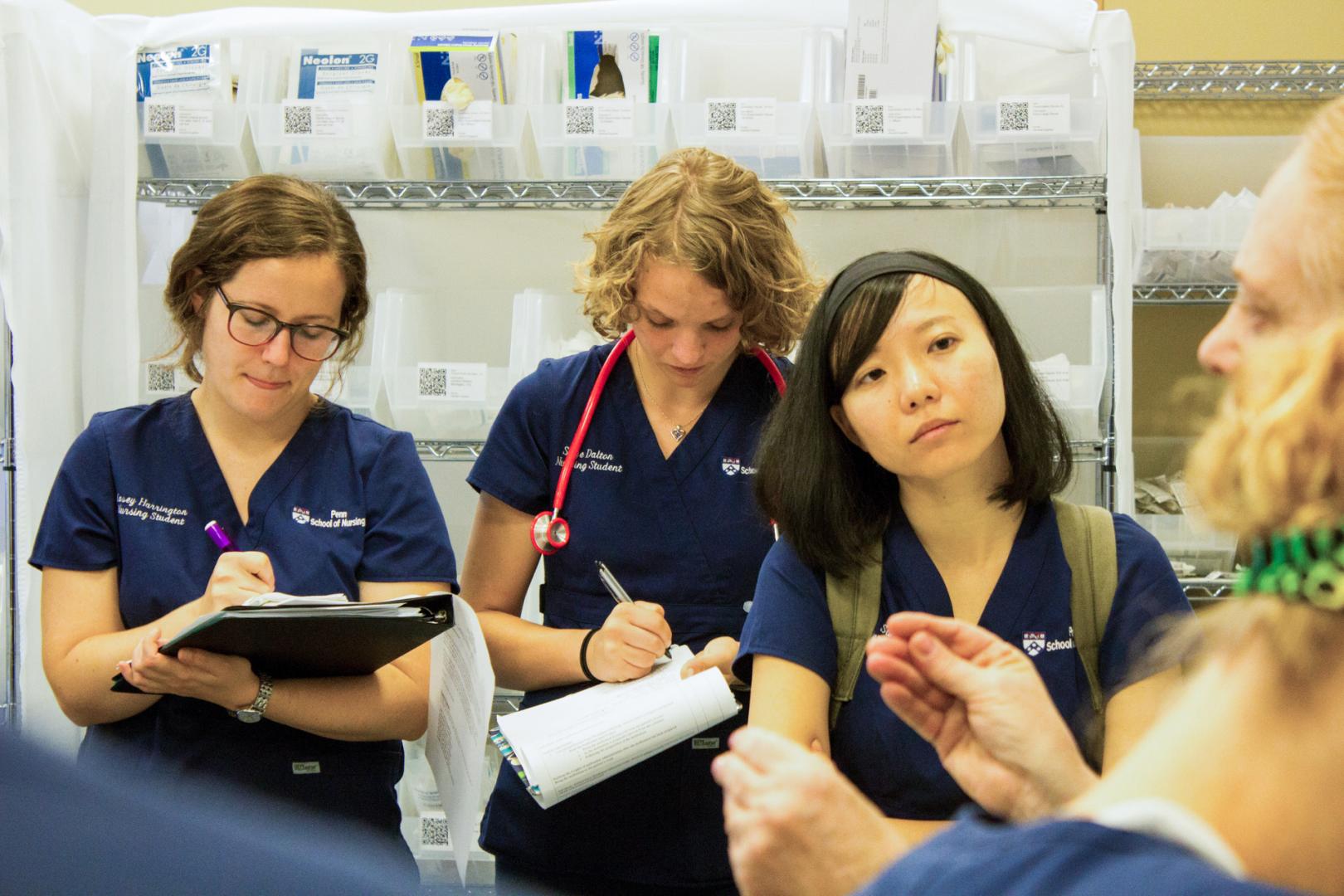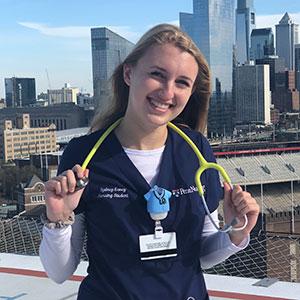
These are unprecedented times that no one could have predicted and being in nursing school during a global pandemic will be an experience I will forever remember. I have witnessed all stages of clinical from the start of the pandemic up until now. Back in March, my OB clinical was cut short and our professors had to scramble to figure out a way to make up our lost hours. We were assigned to complete these exams on “patients” using a virtual program. Given that there was no time for a more fleshed-out plan, I suppose this was an okay option.
Fast forward to Fall 2020 when I was to face the intimidated med-surg clinicals. Thankfully, The Hospital of the University of Pennsylvania (HUP) allowed every rotation to happen in-person with COVID regulations in place. I spent the first half of my semester on a Neurology unit and the second half on a Cardiac Surgery/Lung Transplant unit. It felt rewarding to finally put the skills we had learned in lab to practice on actual patients.
I had several incredible patient experiences that changed my perspective on how I deliver my care…but that’s for another time. I’m sure that right now you are wondering about the COVID precautions that were in place so we could have these in-person experiences. All students were required to have a Green Pass on PennOpen Pass to even enter the hospital. That meant that you had not come into contact with anyone who tested positive or tested positive yourself. The Nursing School provided students with goggles and a few surgical masks. Another safeguard for students came from checking patient’s COVID tests in their charts as we were not allowed to take care of any positive patients. Personally, I never felt unsafe being on the unit but grateful that the school allowed us to have an in-person experience. Besides, nurses don’t stop working just because of a pandemic.
This semester has looked a little different. I am currently in the last week of my Psychiatric rotation that I was lucky enough to have been in-person at Einstein Medical Center. However, the cohort was split between virtual and in-person clinical. In a normal semester, students are spread all over the Philadelphia area at a variety of clinical sites. There were several sites that were not comfortable having students in-person, so an alternative experience had to be formed. Virtual clinical meant that students would spend their six hours, twice a week on Blue Jeans with their clinical instructors and group rather than at a site.
I set up a Q&A with the Associate Course Director for Clinical, Marcus Henderson (MSN, RN) so he could provide some insight on how virtual clinical worked.
Tell me about virtual clinical. (what does the material look like, any training staff had to go through, ect.)
For virtual clinical, students had a structured psychiatric nursing clinical facilitated by experienced psychiatric RNs or advanced practice RNs (i.e. CNS and NP) as clinical instructors. The professional experience of clinical instructors positioned them well to deliver this content virtually. The virtual clinical included lesson plans that took deep dives into important psychiatric-mental health nursing and other key concepts through the use of case studies, videos, online modules, group discussions, role plays, guest speakers, and other means to meet course objectives and facilitate clinical learning. Within a small group, students explored and applied course content in many different ways.
What was important to keep in mind when creating the material for virtual clinical?
It was important to keep in mind the course objectives and how to ensure the best clinical experience possible given the circumstances and the challenges placed upon clinical placements due to the COVID-19 pandemic and related restrictions. The variety of learning strategies used allowed us to accommodate students with different learning needs in order to best learn and understand the material.
What was the preparation like for virtual clinical?
The preparation was time-consuming, as you can imagine because I wanted to ensure the best possible experience. I spent hours reviewing, watching, developing, and putting together activities. Since the clinical was also virtual in the Fall, we had a great foundation to build upon. We were able to closely link the virtual clinical learning with the didactic content to ensure greater understanding of content (i.e., various psychiatric and mental health issues) and application of concepts (i.e., therapeutic communication, mental status exam, etc.).
In your opinion, how successful has virtual clinical been this semester? How did you make it successful?
I think virtual clinical was a success because of the clinical instructors. Yes, I developed the structure and lesson plans, but the instructors facilitated the experience. They brought it to life given their own professional experience as RNs and APRNs in psychiatric-mental health. The instructors were able to adapt and meet the needs of their individual clinical groups to enhance learning, build a sense of community, and ensure students met the clinical objectives by the end of the course. The hard work put in by our clinical instructors made it a success.

